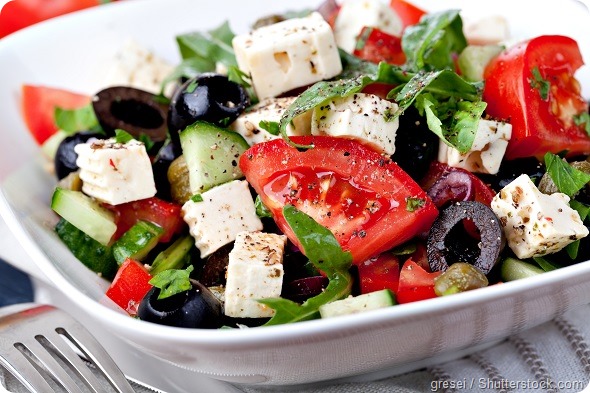New research indicates that adopting a Mediterranean-style diet can reduce the risk of developing chronic kidney disease by 50%.
The Mediterranean diet, which typically includes lots of fruit and vegetables and fish, and few red meats, processed foods, and sweets, has repeatedly been reported to offer a range of health benefits. In particular, it is associated with a lower risk of cardiovascular disease, Alzheimer’s disease, diabetes, and cancer, compared with other diets.
However, despite the well known association between poor diet and kidney disease, it was not known whether the health benefits associated with a Mediterranean diet included kidney health...until now.

Researchers at Columbia University Medical Center assessed the health and diet of 900 people from a multiethnic urban population in Northern Manhattan for 7 years. Each person's diet was given a Mediterranean diet score, with a higher score indicating more Mediterranean-style eating habits. Health outcomes were then analysed to see if there was any link to diet.
It was found that those people with dietary patterns closely resembling the Mediterranean diet (score of ≥5) were 50% less likely to develop chronic kidney disease and 42% less likely to experience rapid kidney function decline compared with those having lower Mediterranean diet scores. It was also shown that a one-point increase in Mediterranean diet score reduced the risk developing chronic kidney disease by 17%.
Chronic kidney disease is a growing epidemic, affecting more than 20 million US adults, so being able to reduce the risk of kidney disease and its progression will have wide-reaching effects. However, these latest findings need to be considered as part of a bigger picture.
Dr Lin of Brigham and Women’s Hospital pointed out that simply adopting a Mediterranean-style diet is not a magic cure; it is only one component of an overall healthy lifestyle,
Although a seemingly simple goal, achieving this is challenging. We need to begin by embracing the reality that there is no magic pill or miracle food, only vigilance and discipline with diet and regular exercise, and the rare indulgence in cake for very special occasions.